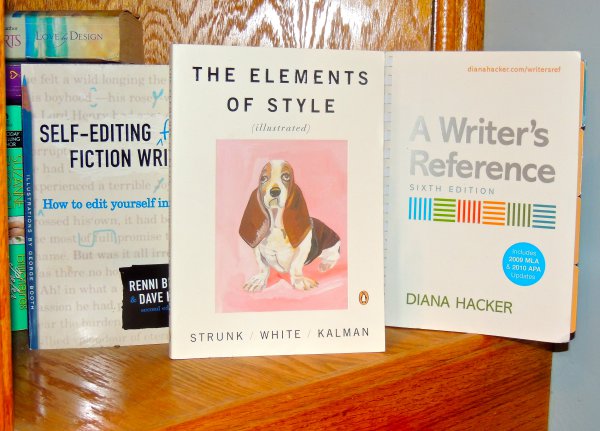
A recent survey conducted by Northeastern University shows that employers want graduates who can communicate effectively both orally and in writing. Here are some common grammatical errors to avoid in being a better speaker and writer.
1. They’re/Their/There
- “They’re” = “They are”
Ex: They’re going to regret wearing stilettos to the beach.
- “Their” is possessive.
Ex: Those girls are struggling to walk on the beach in their stilettos.
- “There” refers to location or a particular point in a process.
Ex: Do you see those silly girls over there? Yeah, the ones wearing stilettos on the beach.
2. Affect/Effect
- Trick: Alphabetically, “affect” comes before “effect.” So, after you affect something, you get an effect.
- “Affect” is most often a verb.
Ex: Superstitions don’t affect my choices.
- “Effect” is most often a noun & is the result of some action.
Ex: Superstition says that seeing a black cat has the unfortunate effect of bringing bad luck.
3. It’s/Its
- Trick: Say the sentence with “it is.” If it sounds wrong, it probably is.
- “It’s” = “it is” or “it has.”
Ex: I’m so excited that it’s finally fall!
- “Its” is always possessive.
Ex: I love fall for its warm colors and sweater-friendly weather.
4. Then/Than
- Trick: Use “than” when comparing things and “then” in any other instances.
- “Then” can have several meanings: At that time, next in order of time, in addition to, etc.
Ex: The kids brush their teeth, then they eat breakfast.
- Than” is used when comparing things.
Ex: The kids would rather eat sand than endure another bowl of Corn Flakes.
5. You’re/Your
- Trick: Say the sentence with “you are.” If it sounds wrong, it probably is.
- “You’re” = “you are.”
Ex: You’re not making a good impression by sending grammatically incorrect emails to the CEO.
- “Your” is always possessive.
Ex: The CEO is so pleased with your grammar that you’re being promoted to President of Communications.
6. Loose/Lose
- Trick: Use “lose” to refer to something that is lost. “Loose” is most often used in terms of fit/security.
- “Lose” is a verb.
Ex: How could you lose my dog?
- “Loose” is most often an adjective.
Ex: His collar was too loose, and he slipped right out!
7. To/Too
- Trick: Replace the word with “also.” If it sounds wrong, it probably is.
- “To” can have several meanings: A place/person/thing one moves toward, the direction of something, indicates relations, etc.
Ex: We should go to the mall before the party.
- “Too” means “also” or “to an excessive degree”
Ex: Can I come too? I planned to wear my blue dress, but it’s too small.
8. Me/Myself/I
- Trick: Take the other noun out of the sentence and see if the sentence makes sense.
- “Me” is an object (the thing acted upon or affected by the action).
Ex: Paul ignored Jane and me when he saw us at the movies yesterday.
- “Myself” is reflexive (you won’t use it unless you’ve already mentioned yourself earlier in the sentence).
Ex: I drove myself to the movies since Jane cancelled last-minute.
- “I” is always the subject and performs the action.
Ex: Jane and I went to the movies yesterday.
Consult a dictionary or use a different word whenever you’re unsure. People do notice when you make these mistakes, and you’ll avoid criticism (silent or vocal) simply by making the right choice.
